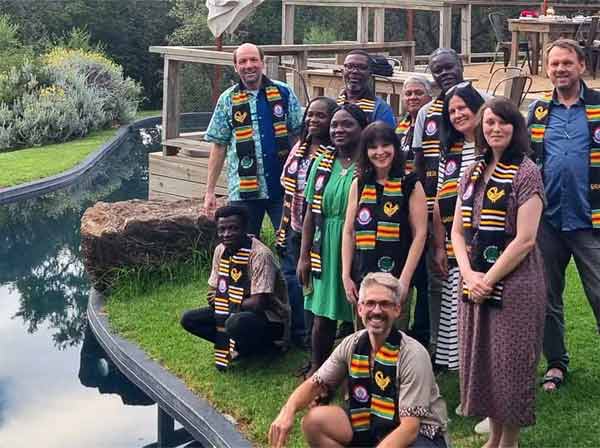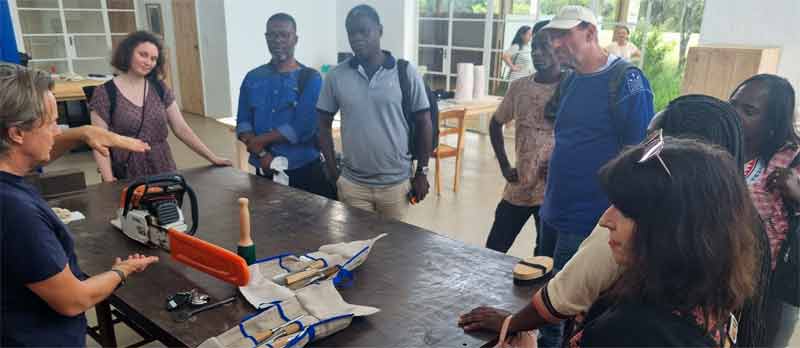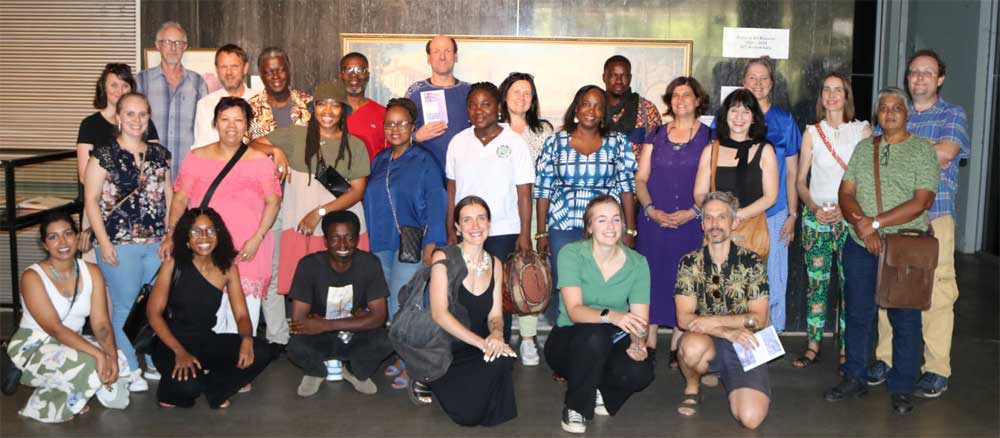Monday, Feb. 19
Morning guided hike to view the artwork Sun(w)hole by Amine El Gotaibi.
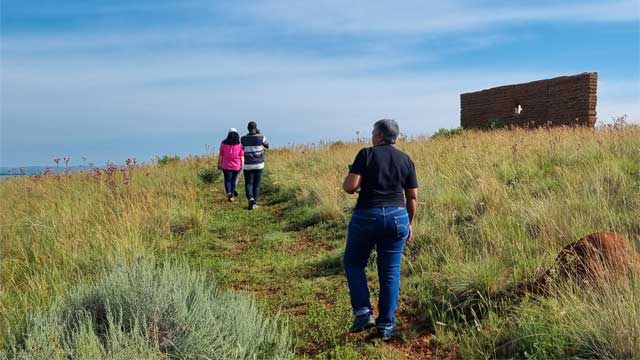
Discussion about the main challenges for education in the respective country that have to be addressed in the textbook (in separate sub-groups Ghana & Germany)
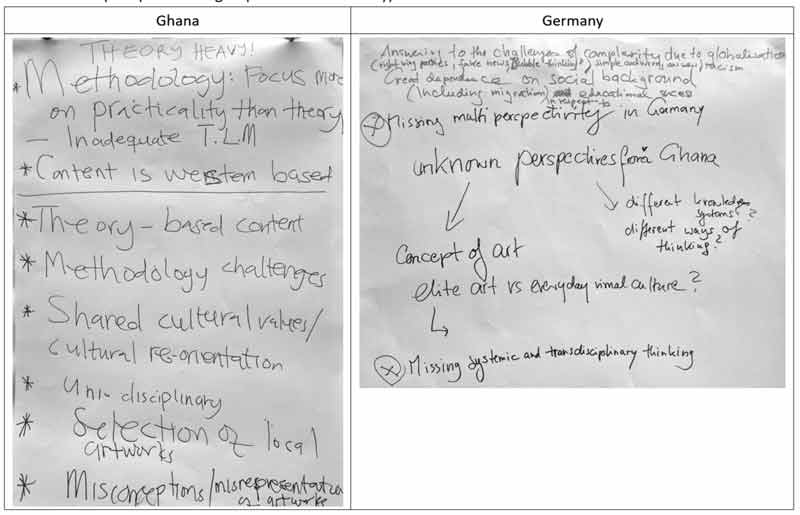
The discussion revealed that in general there are large overlaps in 4 areas, which can be summarized as follows:
- Education does not address contemporary challenges (e.g. sustainability) in both countries.
- There is a dominant perspective of the West that can be found in both countries.
- Silo learning prevents transdisciplinary approaches and a deeper understanding of today’s challenges in education is necessary.
- Education does not reflect central questions that are relevant for today's society, e.g. values or the loss of memory.
Joint writing exercise to discuss the options for transdisciplinary and transcultural approaches
All participants wrote about the artwork Sun(w)hole by Amine El Gotaibi. (Results see: https://explore-vc.org/en/objects/amine-el-gotaibi-sun-w-hole-piece-of-cradle-2019.html)
Tuesday, Feb. 20
Mapping of the write-ups
The ‘mapping’ of the different write-ups from the previous day shows that this approach could be useful to create collective knowledge in a transdisciplinary as well as transcultural approach.
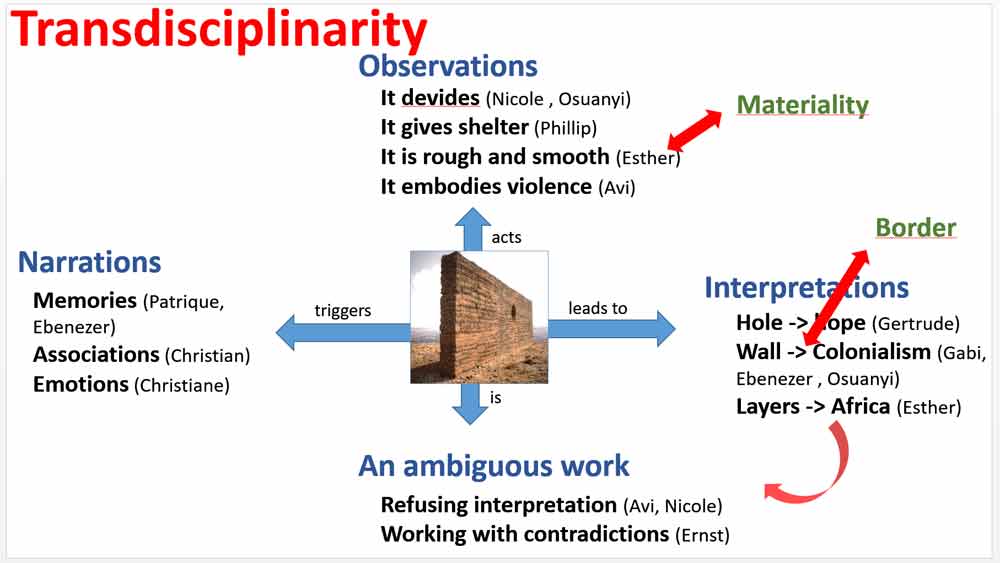
General decisions
- Will our book be a textbook for “art” (with contributions from Geography and History), or a transdisciplinary textbook (i.e. each subject has 33% equal importance and reflection)?
The main argument against a transdisciplinary approach is its applicability in everyday school life in both countries. Such a book would be used less. However, the complexity of the challenges to be addressed in the book is to transform the tradition of one subject knowledge generation approach to a transdisciplinary approach that is innovative and would probably be easier to fund. In this case, the book would be a supplementary book (recommended by NACA in Ghana), not an officially approved textbook, but recommended to supplement teaching and learning. However, the final product is not yet fully realized at present. (Perhaps there will be a pool of texts and materials from which various products can be created). The participants decided in favour of the transdisciplinary approach as this is most beneficial to the educational environment. But, this decision is not about the final product, it is about what we are doing from now on.
- Of the 4 problems identified on Monday (i - iv), which ones are the most relevant? Which ones have to be visible in all chapters?
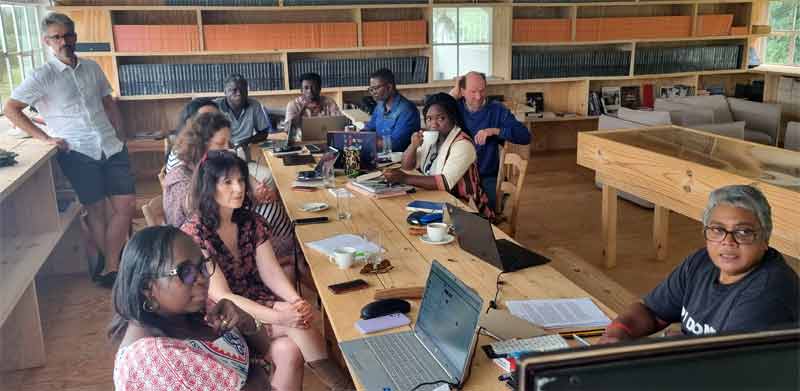
It was decided that we will focus on contemporary challenges from now on. A collection of possible themes followed, asking the question, what are today’s challenges we want to address in this book? The collection showed the following result (already clustered):
- Pollution of the environment (already addressed in our previous attempt re “plastic”) // Biodiversity (already addressed in our previous attempt re “forest”) // Climate Change
- Growing population // Poverty, resources for living // Capitalism
- Social-economic inequality (including the gender and the aspect of disabled people) – inclusion (4 votes) // Racism // Migration (4 votes)* // Conflicts, wars // Power
- Digitization, AI, fake news (1 vote)* // Communication
- Relation Ghana-Germany (including the history of this relation) // Hegemony vs. diversity (regarding knowledge systems) – the problem of translation (3 votes)* // Religion, spirituality, belief systems (2 votes)* // Cultural traditions (1 vote)* // Diversity - universalism
- Body, health - including pandemics (2 votes)*
* The votes mentioned above show the result of the voting process by the participants. There were 12 participants in this workshop.
Decision: We start with the topic “migration” (i.e. migration of people carrying diverse ways of thinking and cultural attitudes with them) – including the social, political and economic dimensions.
Joint writing exercise
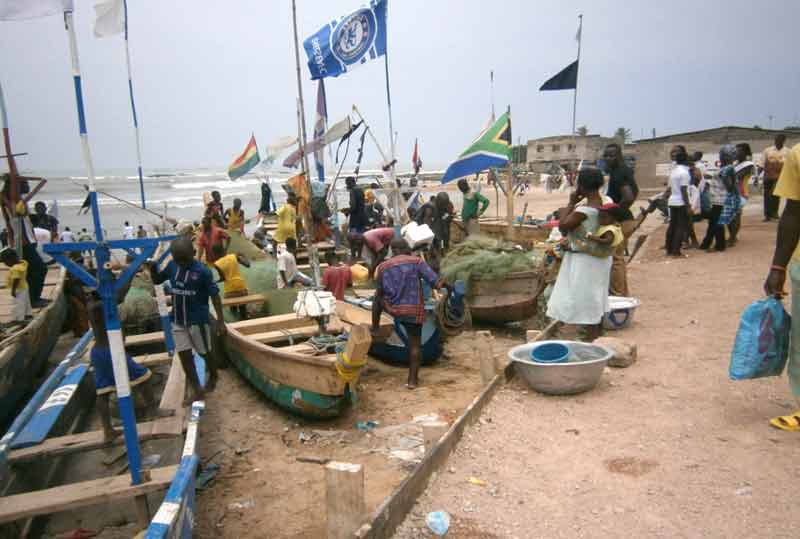
Joint writing exercise to discuss the options for transdisciplinary and transcultural approaches using an image as the source. The geography colleagues now defined the image above allowing the historians and art educators to react to the image from their discipline perspective. (Photo taken by Esther in Winneba).
Site visit of the ‘Nirox Sculpture Park’ (https://www.niroxarts.com/)
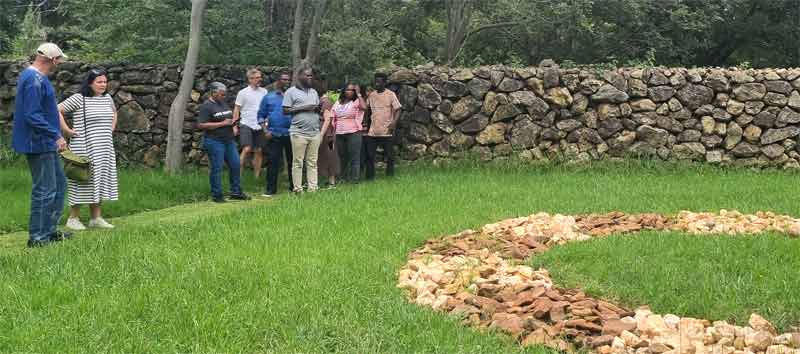
Wednesday, Feb. 21
Discussion
The participants shared their results of the writing exercise about this photo from the previous day. It was clear that such a documentary photo used in geography to support discussions, cannot be compared with the usage of an artwork in art education. The discussion led to a differentiation of three functions that images offer in a textbook:
- Motivation for the students to get involved in a topic (This photo had been selected for this function in a chapter written by Esther and Gabriele)
- Illustration (e.g. a map, bar charts, etc.)
- Source (like an artwork that triggers the process of meaning-making through an encounter involving not only the senses but also emotions)
Furthermore, it became apparent that an exhaustive approach using only one source with little additional information (as with the artwork on Monday) does not work in the case of a given theme (like migration). It seems to make more sense to collect various images from different perspectives on a topic such as migration. This task was agreed for the next day.
Site visit of the ‘Cradle of Humankind’
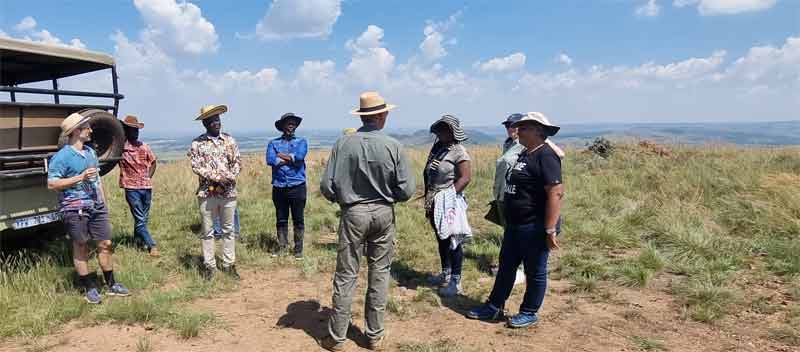
Note by the minute-taker: The experience of this visit and especially the historically and geographically oriented tour by the ranger could be such an experience (as just mentioned above). Then this visit and the experiences made during it would be a source (i.e., function 3) that leads to the creation of meaning. The ranger's explanations and stories were an excellent example of such a process of meaning-making. Unfortunately, this could not be discussed any further due to time constraints (also the visit to the Nirox sculpture park has the potential for such an exercise).
Thursday, Feb. 22
Site visit of the Nirox Residency Program (https://www.niroxarts.com/residency)
Examples from the collection of images
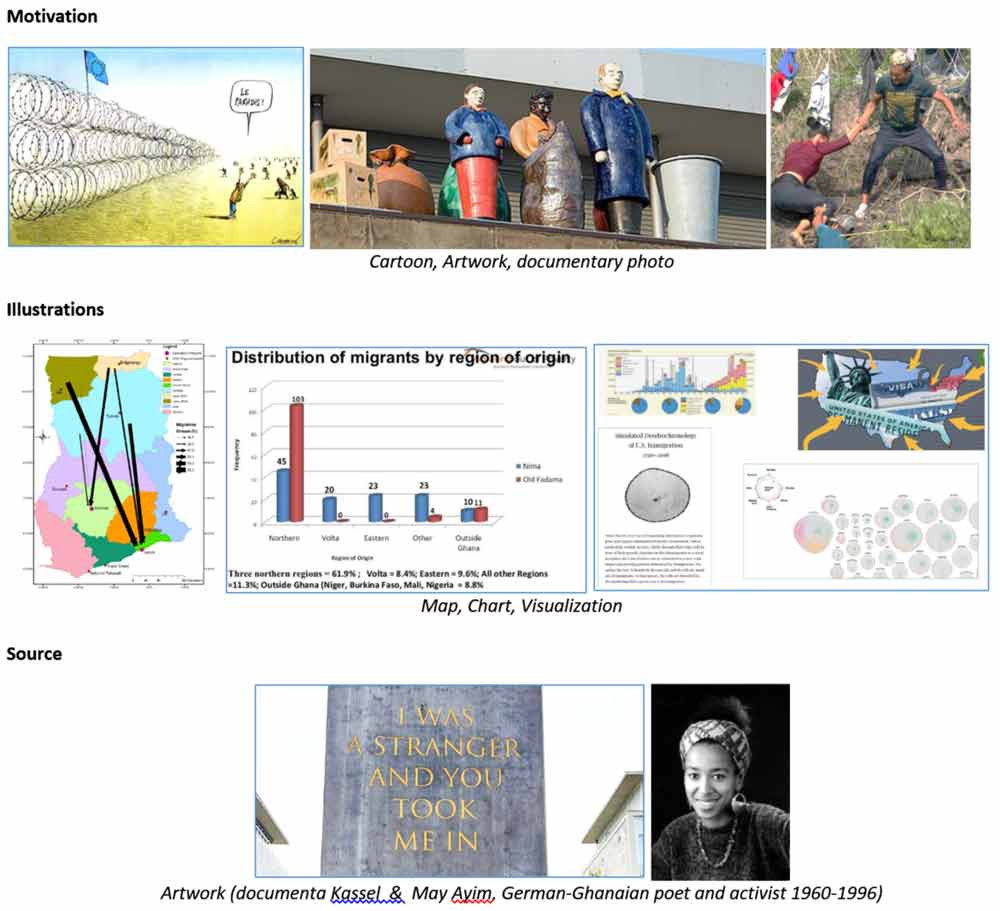
Next steps
- To develop the content further, Osuanyi and Ernst are going to write two texts on the artwork of the first day, Sun(w)hole. The results will then be sent to all and discussed.
- It would also make sense to analyze the images on the topic of migration, e.g. from the perspective of geography and/or history.
- The specialised teams must be completed or reduced.
- For the further work process, Gabi and Ernst suggest that each specialised team clarifies how it would approach the topic of "migration" in the respective subject in the respective country: What content would be important? Which media, materials and text types would be used? These descriptions (2 pages) are to be developed over the next few weeks.
- An important finding was that the project needs such joint workshops to find the right path to writing the textbook and this process requires funding.
Friday, Feb. 23
Site visit to Tshwane University of Technology Art Department in Pretoria


